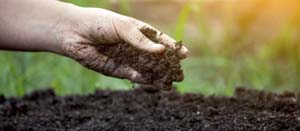SEARCH RESULTS > ARTICLES > sustainable gardening
Permaculture gardens thrive on the principle of working with nature, and at the heart of a successful permaculture garden lies healthy soil. Building and maintaining fertile soil is essential for sustainable gardening practices that promote biodiversity, water conservation, and overall ecosystem health. Learn More
In the realm of sustainable gardening, permaculture stands out as a holistic and eco-friendly approach that harmonizes with nature rather than imposing on it. Creating a permaculture garden involves thoughtful planning, observation, and a commitment to working with the natural environment. In this step-by-step guide, we'll explore how to design a permaculture garden that not only yields bountiful harvests but also nurtures the ecosystem. Learn More
Regulating the pH in your garden using organic methods is a sustainable and environmentally friendly way to ensure healthy plant growth. Here are several organic methods to adjust and maintain the pH in your garden: Learn More
The microbiome in your garden soil refers to the diverse community of microorganisms that inhabit the soil. These microorganisms play a crucial role in maintaining soil health, nutrient cycling, and plant growth. The soil microbiome consists of various organisms, including bacteria, fungi, archaea, viruses, and microfauna (such as nematodes and protozoa). Here are some key points about the microbiome in garden soil. Learn More
People have various reasons for wanting to have a garden, as it offers a range of physical, emotional, and practical benefits. Here are some insights into why people are drawn to gardening Learn More




